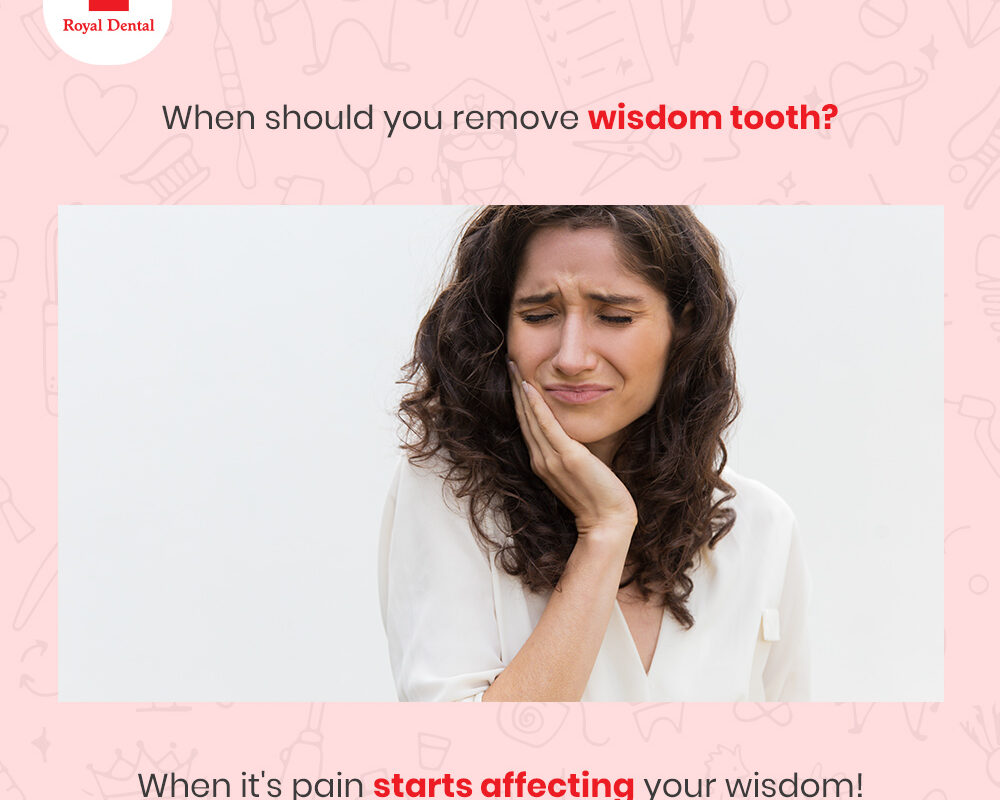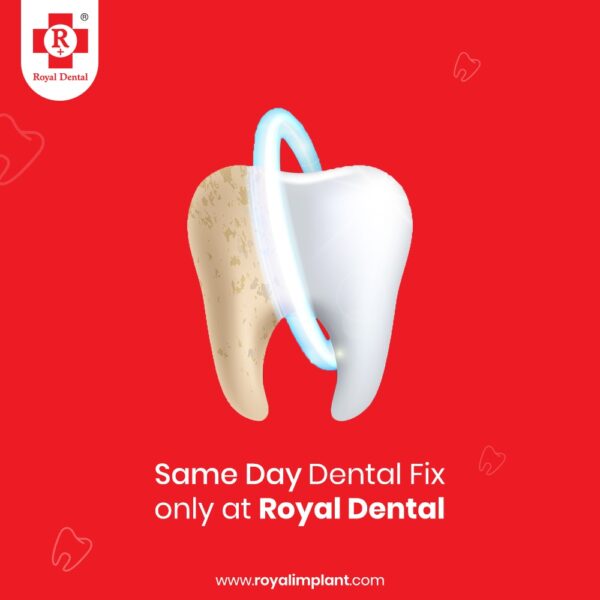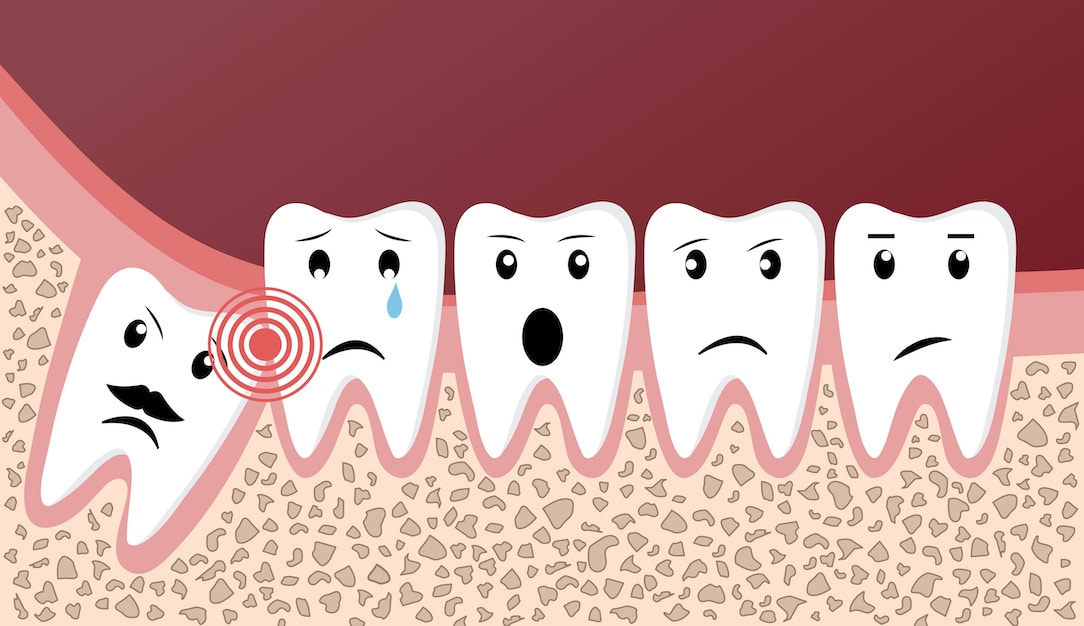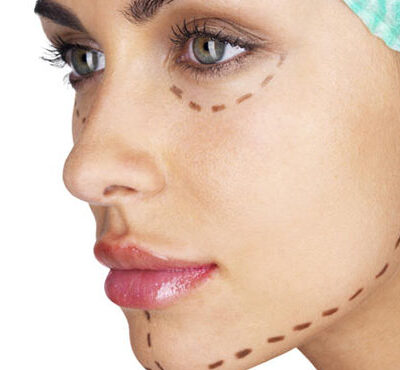Having multiple wisdom teeth won’t make you smarter! Wisdom tooth are called so because they usually come when you’re older. These teeth are in the very back of your mouth and are the last ones to erupt. There are two on the top and two on the bottom jaws. When these erupt in straight-line axis, the extraction is pretty simple without any complications. There may be cases where wisdom teeth removal may become more surgical. How is the recovery after an extraction?
Wisdom Teeth Extraction Recovery!
For an Impacted wisdom teeth extraction, the recovery period is between 3-4 weeks. Sutures may be removed after a week but the wound site is raw. It is normal to therefore have a slight oozing and numbness on the site even after extraction which will cease after 24 hrs. You may sometimes feel stiffness in jaw and difficulty in mouth opening. You may be advised to eat soft food for a week and avoid spicy food, tobacco, smoking and alcohol. No spitting, heavy exercising, forceful rinsing till the clot forms!

Once the extraction performed the extraction site thoroughly washed with betadine for no residue of any infection. The retracted gingiva then sutured to its place and a gauze pack given to the patient to reduce bleeding and clot formation. Which in turn helps in healing. The healing process can be broken into the following stages:
First 24 hours the Blood clot will form.
Next 2 to 3 days, Swelling in mouth and cheeks should improve.
Day 7th: A dentist can remove any stitches that remain.
7th to 10th Day: Jaw stiffness and soreness should go away.
Post 2 weeks: Complete recovery is possible.
Does The Lips Get Numb!
Lip numbness is one of the possible complications of wisdom tooth extraction. It happens when the nerve which lies in the vicinity to the wisdom teeth gets damaged. This may cause sensation problems. It is usually temporary and may last from a few weeks to a few months. In some cases the damage may be permanent.

The nerves running in close proximity to the are inferior alveolar nerve, mental nerve branch of inferior alveolar nerve and lingual nerve. The incidence of inferior alveolar nerve damage while removal is around 0.04 to 8 percent when the buccal approach is used. The damage can cause prolonged anaesthesia or paraesthesia causing impairment in speech, chewing, sleep and on patients overall mental state. Altered sensation in the tongue, chin and lower lip are most common symptoms. Painkillers and steroids are commonly prescribed medications in order to reduce the inflammation of the nerve.
Get Online Consulting for Wisdom Tooth Extraction Recovery: Royal Dental Clinics.
Home-care tips for recovery from extraction:
Keep the wound clean. Intake warm and soft food that don’t get stuck. Try the following to help keep the wound clean:
- Use an antiseptic mouthwash to prevent infection.
- Rinse with warm water and salt to reduce swelling.
- Sleep with raised head to feel more comfortable.
When to see your dentist? Wisdom tooth extraction recovery!
You may take an appointment to see your dentist if you’re undergoing severe pain or discomfort after your removal. Your dentist will then examine and advise on necessary medications. You should make an appointment to see your dentist if your wisdom teeth are causing severe pain. They’ll check your teeth and advise you whether they need to be removed. If your dentist thinks you may need to have your wisdom teeth removed, they’ll usually carry out an X-ray of your mouth.
Follow Us For More Updates





